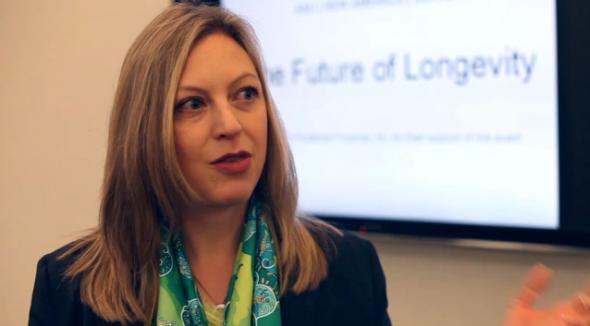Why Is Everyone So Negative About Living to 120?
Science fiction about longevity tends toward the dystopian.
A recent Pew poll found that most Americans think it would be “bad for society” if people began to live to an average of 120. In Slate, William Saletan argued that that’s probably because those surveyed “picture spending much of that time feeling withered, afflicted, and debilitated.” In reality, Saletan says, “[B]eing 90 sucks. But that’s true only because of the current rate of physical decline.” If science can prolong life, it’s not unlikely that it can prolong health, too.
The commonly held, pessimistic view of living longer could have been influenced by popular culture. At a Future Tense event on Oct. 4 in Washington, D.C., Sonia Arrison, author of the book 100 Plus: How the Coming Age of Longevity Will Change Everything, From Careers and Relationships to Family and Faith, discussed the negative portrayal of life extension in popular sci-fi.
How to Make Social Security Last: If we’re going to live longer, we’ll need it more than ever,” by Matthew Yglesias.
“The Jetson Fallacy: Much longer lifespans could explode the nuclear family,” by Liza Mundy.
“In Sickness and in Health: Marriage may extend your life, but it also contributes to obesity,” by Briam Palmer.
“Why No One Actually Wants to Live Forever: It would be really, really dull,” by Gemma Malley.
“Talking ’Bout My Generation: The Real Walking Dead: The problem with longevity? Old people,” by Brad Allenby.
